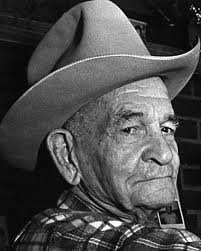A butler is a person who works in a house serving and is a domestic worker in a large household. In great houses, the household is sometimes divided into departments with the butler in charge of the dining room, wine cellar, and pantry. Some also have charge of the entire parlor floor and housekeepers caring for the entire house and its appearance. A butler is usually male and in charge of male servants while a housekeeper is usually a woman and in charge of female servants. Traditionally, male servants (such as footmen) were better paid and of higher status than female servants. The butler, as the senior male servant, has the highest servant status. He can also sometimes function as a chauffeur.
In older houses where the butler is the most senior worker, titles such as majordomo, butler administrator, house manager, manservant, staff manager, chief of staff, staff captain, estate manager, and head of household staff are sometimes given. The precise duties of the employee will vary to some extent in line with the title given but, perhaps more importantly, in line with the requirements of the individual employer. In the grandest homes or when the employer owns more than one residence, there is sometimes an estate manager of higher rank than the butler. The butler can also be assisted by a head footman or footboy called the under-butler.
The word butler comes from Anglo-Norman buteler, a variant form of Old Norman *butelier, corresponding to Old French botellier 'officer in charge of the king's wine bottles', derived from boteille 'bottle' (Modern French bouteille), itself from Gallo-Romance BUTICULA 'bottle'. For centuries, the butler has been the attendant entrusted with the care and serving of wine and other bottled beverages, which in ancient times might have represented a considerable portion of the household's assets and led to the position becoming chief steward of a household.
In Britain, the butler was originally a middle-ranking member of the staff of a grand household. In the 17th and 18th centuries, the butler gradually became the senior, usually male, member of a household's staff in the very grandest households. However, there was sometimes a steward who ran the outside estate and financial affairs, rather than just the household, and who was senior to the butler in social status into the 19th century. Butlers used always to be attired in a special uniform, distinct from the livery of junior servants, but today a butler is more likely to wear a business suit or business casual clothing and appear in uniform only on special occasions.
A silverman or silver butler has expertise and professional knowledge of the management, secure storage, use and cleaning of all silverware, associated tableware and other paraphernalia for use at military and other special functions.
The modern butler
Beginning around the early 1920s (following World War I), employment in domestic service occupations began a sharp overall decline in western European countries, and even more markedly in the United States. Even so, there were still around 30,000 butlers employed in Britain by World War II. As few as one hundred were estimated to remain by the mid-1980s. Social historian Barry Higman argues that a high number of domestic workers within a society correlates with a high level of socio-economic inequality. Conversely, as a society undergoes levelling among its social classes, the number employed in domestic service declines.
Following varied shifts and changes accompanying accelerated globalisation beginning in the late 1980s, overall global demand for butlers since the turn of the millennium has risen dramatically. According to Charles MacPherson, President of Charles MacPherson Associates and owner of The Charles MacPherson Academy for Butlers and Household Managers, the proximate cause is that the number of millionaires and billionaires has increased in recent years, and such people are finding that they desire assistance in managing their households. MacPherson emphasises that the number of wealthy people in China has increased particularly, creating in that country a high demand for professional butlers who have been trained in the European butlering tradition. There is also increasing demand for such butlers in other Asian countries, India, and the petroleum-rich Middle East.
Higman additionally argues that the inequality/equality levels of societies are a major determinant of the nature of the domestic servant/employer relationship. As the 21st century approached, many butlers began carrying out an increasing number of duties formerly reserved for more junior household servants. Butlers today may be called upon to do whatever household and personal duties their employers deem fitting, in the goal of freeing their employers to carry out their own personal and professional affairs. Professional butler and author Steven M. Ferry states that the image of tray-wielding butlers who specialize in serving tables and decanting wine is now anachronistic, and that employers may well be more interested in a butler who is capable of managing a full array of household affairs‒from providing the traditional dinner service, to acting as valet, to managing high-tech systems and multiple homes with complexes of staff. While in truly grand houses the modern butler may still function exclusively as a top-ranked household affairs manager, in lesser homes, such as those of dual-income middle-class professionals, they perform a full array of household and personal assistant duties, including mundane housekeeping. Butlers today may also be situated within corporate settings, embassies, cruise ships, yachts, or within their own small "Rent-a-Butler" business or similar agency.
Along with these changes of scope and context, butlering attire has changed. Whereas butlers have traditionally worn a special uniform that separated them from junior servants, and although this is still often the case, butlers today may wear more casual clothing geared for climate, while exchanging it for formal business attire only upon special service occasions. There are cultural distinctions, as well. In the United States, butlers may frequently don a polo shirt and slacks, while in Bali they typically wear sarongs.
In 2007, the number of butlers in Britain had risen to an estimated 5,000. That number rose to 10,000 by 2014, consistent with increased worldwide demand.
If you want to read more, go here: https://en.wikipedia.org/wiki/Butler
- 1 pound ground beef
- 3/4 cup plain bread crumbs
- 1/2 cup grated Parmesan cheese
- 1/2 cup water
- 2 tablespoons chopped fresh parsley
- 1 egg
- 1 1/2 teaspoons garlic powder
- 1 teaspoon salt
- 3/4 teaspoon black pepper
- 1 (8-ounce) block mozzarella, cut into 20 (1/2-inch) cubes
- Preheat oven to 350º. Coat a baking sheet with cooking spray.
- In a large bowl, combine all ingredients except mozzarella cheese; mix well.
- Divide mixture into 20 meatballs, then form each meatball around a mozzarella cube, making sure to cover cheese completely. Place on prepared baking sheet.
- Bake 15 to 20 minutes or until no longer pink in center. Serve immediately.
1927 – Vin Scully, American baseball announcer (d.2022)
1955 – Howie Mandel, Canadian comedian









